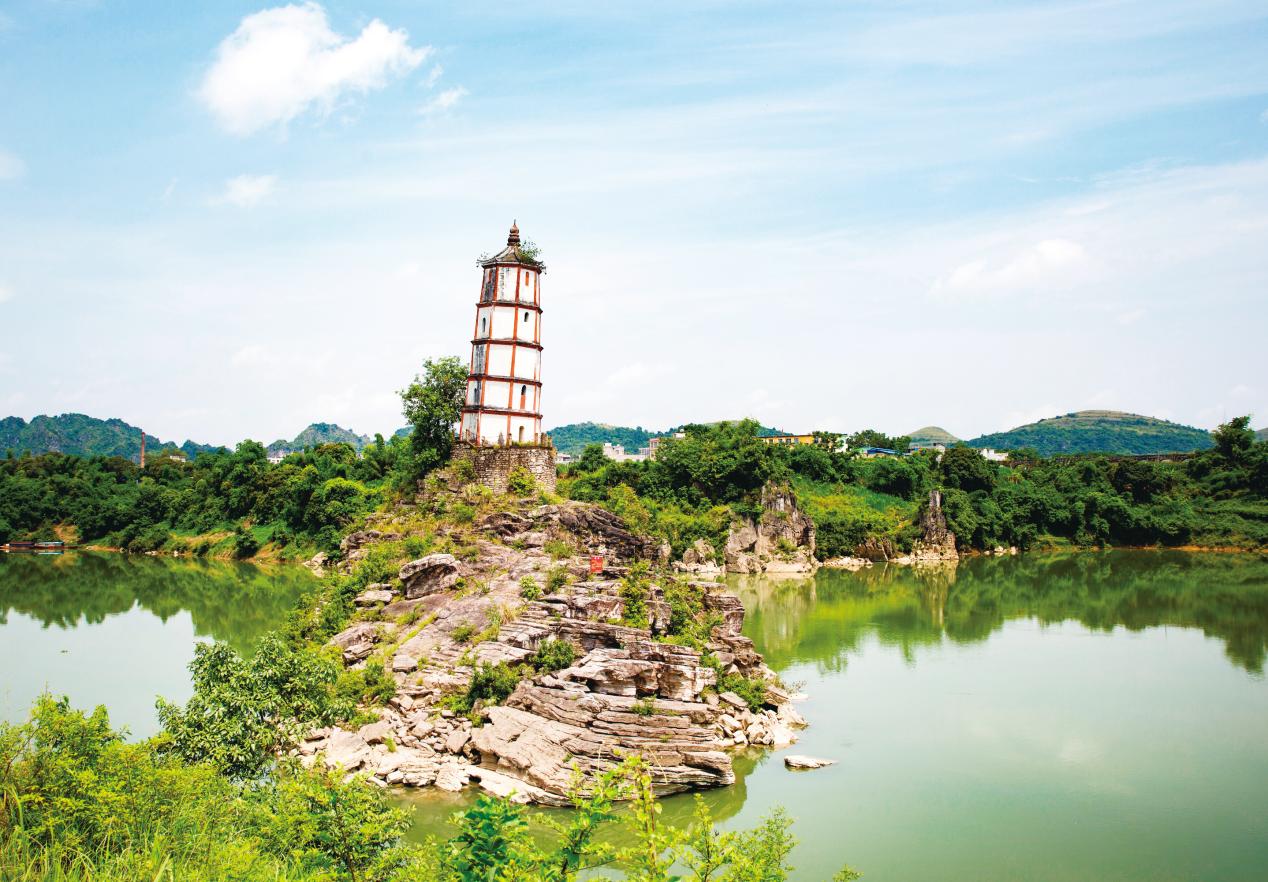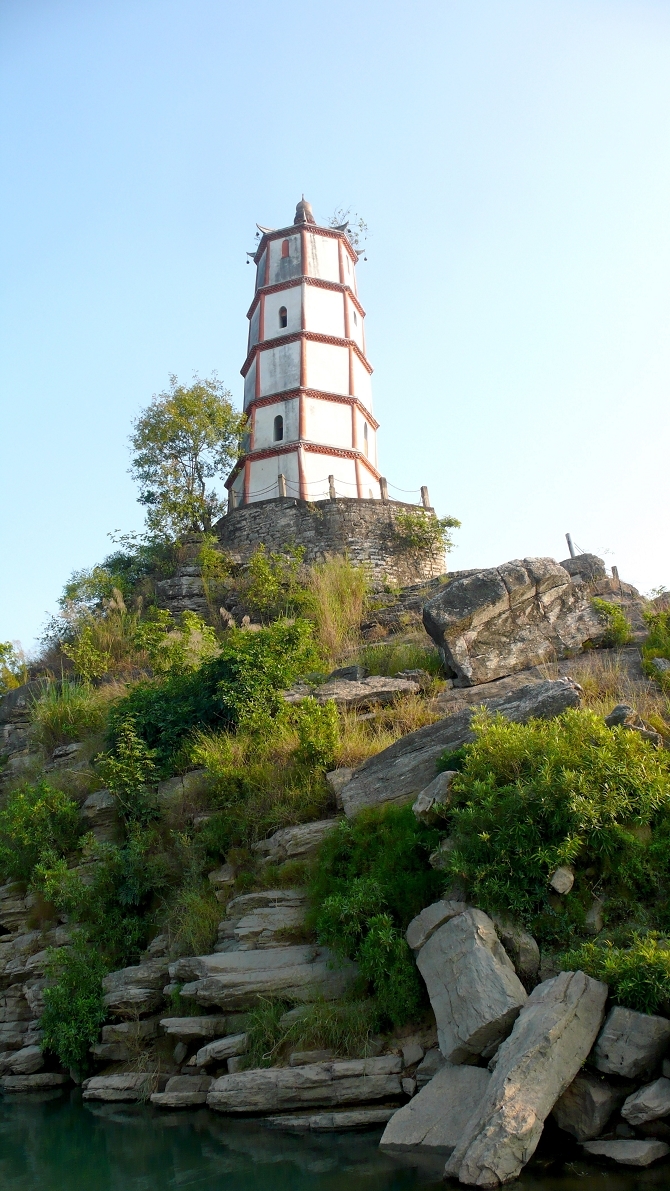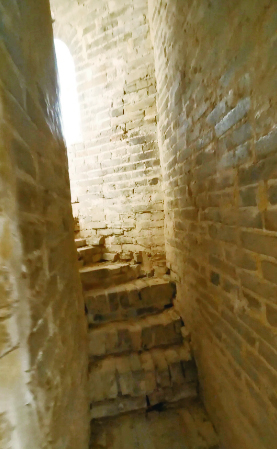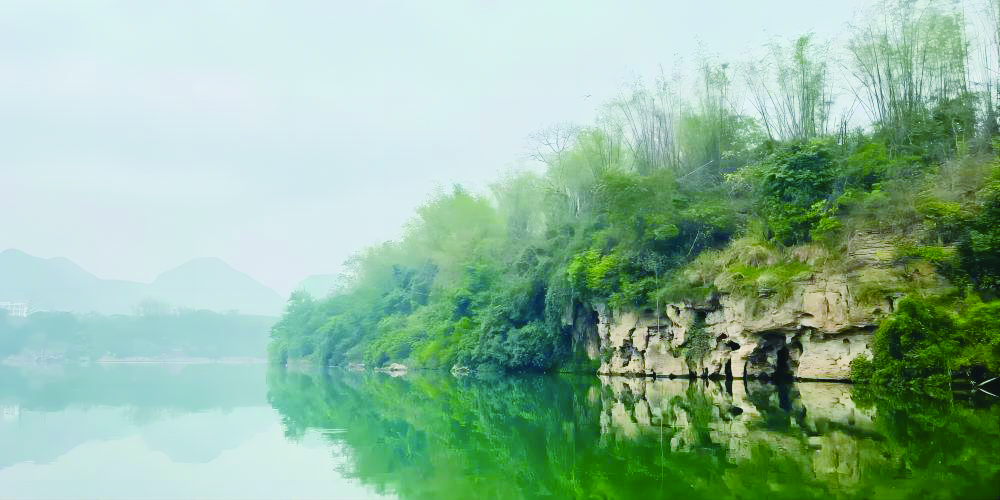

By Chen Zhiying
When it comes to the leaning tower, people would naturally think of the famous Leaning Tower of Pisa in Italy. The bell tower which was built in 1173 and began to lean in 1178 is indeed one of the most magnificent buildings in human history. Also being the tower where Galileo made his free-fall experiment, it’s more than just an architectural masterpiece and a historical site, but the place where science happened. Across the Atlantic, in Chongzuo, Guangxi Zhuang Autonomous Region, there is an ancient leaning tower that enjoys the same popularity as the one in Italy. For more than 400 years, it has stood in the center of the Zuojiang River, witnessing the vicissitudes of history.


Aspiration for safety
Over the history of more than 400 years, Zuojiang Leaning Tower has undergone two major renovations. It was built in the year 1621 by Li Youmei, the governor of Taiping Prefecture (now Chongzuo City) in the Ming Dynasty (1368-1644). In the 35th year during the reign of Emperor Kangxi (1661-1722), the then magistrate Xu Yue built two more floors to make it a five-story brick octagonal tower with a diameter of 3.44 meters at the bottom and a height of 23.28 meters. In 1983, Chongzuo Cultural Relics Management Office repaired the tower base damaged by floods and built a fence to protect it.
The reason why the local governments in ancient times are so keen on building a tower on the Zuojiang River relates to its role as a beacon tower. According to records, the island in the middle of the Zuojiang River where the leaning tower is located was not an island, but a peninsula. It stretched from the shore and blocked half of the Zuojiang River, forcing the river to make a sharp turn here and bringing dangers to the passing ships, but after the completion of the tower, shipping accidents rarely occurred. It certainly served the purpose of safety warnings.
Tips: There is a legend that a monster dragon lived at the bend of the Zuojiang River and often made harm to passing ships. The nearby villagers worked together to outwit the dragon, and to commemorate their victory and also pray for peace, the tower was built.
Wonder of Zuojiang Leaning Tower
The wonder of Zuojiang Leaning Tower lies in its natural surroundings. In the Zuojiang Leaning Tower Park, besides dense groves of trees, what most frequently meets the eye are paths made of slates that seemingly lead to nowhere. They wind through the lush plants until to be interrupted by pavilions provided for rest. Walking along the path, sometimes you seem to come to the end, but all of a sudden, a new world is rolled out in front of you: antique pavilions, rocks inscribed with poems, and small boats berthing at the bank — all combining to provide a pleasant surprise. If you happen to visit the park in early winter, the tower, the pavilion, and the Zuojiang River enshrouded in the mist produce an irresistible appeal.


Besides primitive natural scenery, the unique architectural structure serves as another wonder of the tower.
Looking from outside, the five-story octagonal tower painted in red and white stand still on the isolated island; The upturned corners of the tower roofs are like flying birds with wings widespread; At the end of each roof corner hang rusty bells; Ancient vines of hundreds of years grow in the cracks of the tower base. All these proclaim the beauty of traditional Chinese buildings, dignified, exquisite, and elegant, while, at the same time, conveying a sense of solitude.
Walking inside, you’ll find that the tower adopts a double-tube structure which composes of inner and outer layers. The two layers are connected by a spiral staircase counterclockwise to the top floor. The space between the two layers is so narrow that it only allows one person to pass by. Being in such a limited space must be uncomfortable, however, windows around the tower may help to divert your attention to a view of infinite space. As you walk upstairs, you will have a feeling of inclination. That’s because the tower leans at an angle of 4.25 degrees. According to research, it is designed in such inclination deliberately by the craftsmen after taking into consideration factors such as wind direction, tower base, and the river. Four hundred years passed by, and the tower still stands in the Zuojiang River. The stable architectural structure not only shows the wisdom of the ancient Chinese but also earns it a place in the list of the World’s Eight Great Leaning Towers.


The leaning tower is rare in the world, especially the one located in the middle of a river. Come and indulge in the garden-like environment and appreciate the masterpiece left by our ancestors.
Tips:
1. To protect the leaning tower, visitors are not allowed to go inside it now. It’s suggested to take a boat to have a close view of the tower.
2. The opening time of Zuojiang Leaning Tower Park is from 8 am to 5 pm, and the ticket is 5 yuan for each person.
桂ICP备14000177号 Copyright@2006-2013 Guangxi China-ASEAN Panorama Magazine Agency Co., Ltd. All Rights Reserved